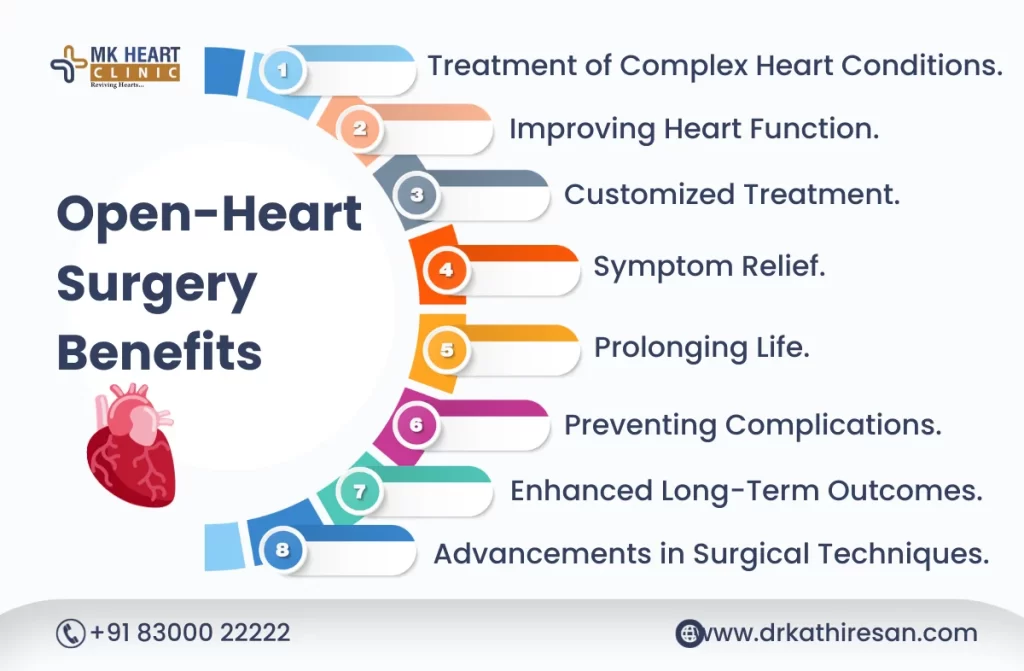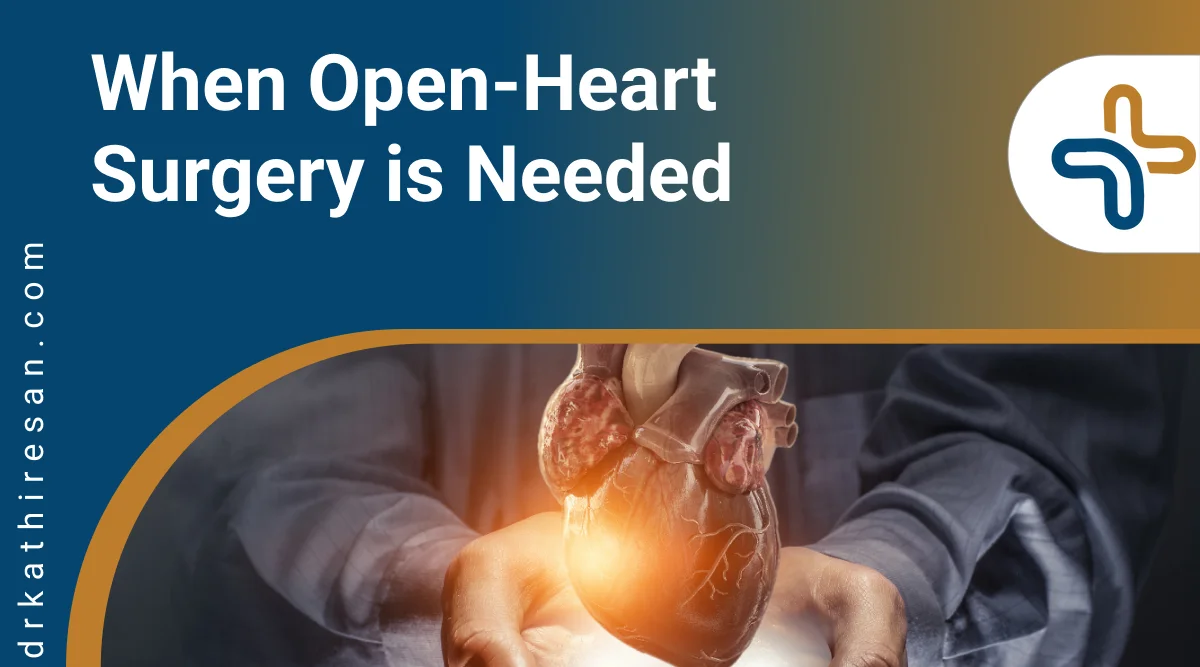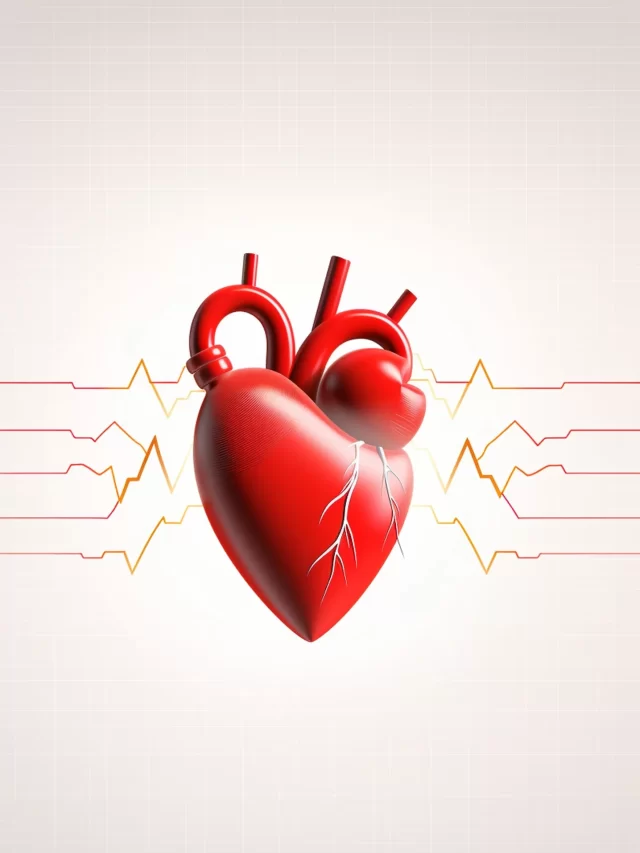Open-heart surgery, also known as cardiac surgery, is a medical procedure that involves opening the chest to access the heart. It is typically performed to treat a variety of heart conditions when less invasive treatments are not effective. In this article, we will explore the reasons why and when open-heart surgery is needed.
Causes of Open-Heart Surgery
Understanding the reasons for open-heart surgery is essential before delving into when open-heart surgery is actually required for heart patients.
1. Coronary Artery Disease (CAD): One of the most common reasons for open-heart surgery is coronary artery disease. CAD occurs when the blood vessels that supply the heart muscle with oxygen and nutrients become narrowed or blocked by the buildup of plaque. Open-heart surgery may be necessary when CAD becomes severe, leading to angina (chest pain) or increasing the risk of a heart attack.
2. Heart Valve Disease: Heart valves are responsible for ensuring blood flows in the correct direction within the heart. Conditions like aortic stenosis (narrowing of the aortic valve) or mitral regurgitation (leakage of the mitral valve) often require open-heart surgery to repair or replace the affected valves.
3. Congenital Heart Defects: Some individuals are born with structural abnormalities in their heart known as congenital heart defects. These defects can vary in severity and complexity, but they must know when open-heart surgery is needed as it can help correct the issues and improve heart function.
4. Aneurysms: Aneurysms are abnormal bulges or weak spots in the blood vessels, particularly in the aorta, which is the largest artery in the body. When an aortic aneurysm becomes large or starts to rupture, open-heart surgery may be necessary to repair or replace the damaged portion of the aorta.
5. Heart Failure: Severe heart failure occurs when the heart cannot pump enough blood to meet the body’s needs. In some cases, open-heart surgery can be performed to implant mechanical devices like ventricular assist devices (VADs) or to perform a heart transplant when other treatments are not effective.
6. Arrhythmias: Abnormal heart rhythms, known as arrhythmias, can disrupt the heart’s electrical system. In certain cases, open-heart surgery may be needed to perform procedures like the Maze procedure or surgical ablation to correct these irregular heart rhythms.
7. Infection: Heart infections, such as endocarditis, can damage the heart valves or other heart structures. When you consider when open-heart surgery is needed, it is crucial to know that the medical treatments aids in managing infection and the necessity may arise for the removal of infected tissue or the repair of damaged areas.
8. Tumors: While rare, tumors can develop in the heart. Open-heart surgery might be necessary to remove tumors or affected tissue.
9. Heart Transplant: In cases of end-stage heart disease, where the heart is severely damaged and cannot function adequately, a heart transplant may be the only viable option. Open-heart surgery is performed to remove the patient’s diseased heart and replace it with a healthy donor heart.
10. Congestive Heart Failure: When heart failure reaches an advanced stage and medications and less invasive treatments are no longer effective, open-heart surgery can be considered. Procedures like coronary artery bypass grafting (CABG) or ventricular restoration surgery may be used to improve heart function.

Benefits of Open-Heart Surgery: Understanding When It’s Essential
Open-heart surgery, a medical procedure involving incisions into the chest to access the heart, offers crucial benefits in specific cardiac conditions.
- Coronary Artery Bypass Grafting (CABG): Vital for treating severe coronary artery disease, improving blood flow to the heart muscle.
- Heart Valve Repair or Replacement: Essential to address damaged or malfunctioning heart valves, restoring normal cardiac function.
- Aneurysm Repair: Indispensable for repairing weakened areas of the heart’s blood vessels, preventing life-threatening ruptures.
- Heart Transplant: Critical in cases of end-stage heart failure, offering a chance for a healthier life with a new heart.
Understanding when open-heart surgery is required ensures timely interventions, leading to improved cardiovascular health and enhanced quality of life. Consult with cardiovascular specialists to determine the necessity and potential benefits of open-heart surgery tailored to individual cardiac needs.
When is Open-Heart Surgery Needed?
The decision to perform open-heart surgery is not taken lightly and is typically made by a team of healthcare professionals, including cardiologists and cardiac surgeons. Several factors influence when open-heart surgery is needed:
1. Severity of the Condition: The severity of the heart condition and its impact on the patient’s overall health play a crucial role in determining when open-heart surgery is needed. Conditions that are life-threatening or significantly impair the patient’s quality of life often necessitate prompt surgical intervention.
2. Failed Conservative Treatments: Before recommending surgery, doctors will often explore less invasive treatments such as medication, lifestyle modifications, or minimally invasive procedures. Open-heart surgery is considered when these treatments prove inadequate.
3. Risk-Benefit Analysis: The potential benefits of open-heart surgery, including improved quality of life and increased life expectancy, must outweigh the risks associated with the procedure. Patients’ age, overall health, and any underlying medical conditions are considered when assessing these risks.
4. Patient’s Preference: In some cases, patients may have a say in the timing of open-heart surgery. The heart specialist only will determine when open-heart surgery is needed because sometimes it does not compromise their safety.
5. Emergency Situations: In emergencies, such as aortic dissection or acute heart attack, open-heart surgery may be required urgently to save the patient’s life.
The success rate of open-heart surgery in India can be influenced by various factors, including the specific type and complexity of the surgery, the patient’s overall health, and the skill of the medical team performing the procedure.
Recovery and Rehabilitation
While considering when open-heart surgery is needed, patients should also understand certain common aspects of recovery and rehabilitation. The success rate of open-heart surgery in India, including the recovery process, varies depending on several factors:
- Hospital Stay: Patients typically spend several days in the hospital after open-heart surgery, with the length of stay depending on the complexity of the procedure and the patient’s overall health.
- Pain Management: Pain at the incision site is common after surgery. Medications and pain management techniques are used to keep the patient comfortable.
- Cardiac Rehabilitation: Many patients are referred to cardiac rehabilitation programs, which include supervised exercise, dietary guidance, and education to help patients regain their strength and improve their cardiovascular health.
- Medications: Patients are often prescribed medications to manage blood pressure, prevent infection, and reduce the risk of blood clots.
- Lifestyle Changes: When considering when open-heart surgery is needed, you should know that lifestyle modifications, such as a heart-healthy diet, regular exercise, smoking cessation, and stress management, are crucial for long-term recovery and heart health.
Conclusion
To conclude, open-heart surgery is a complex and life-saving procedure that becomes necessary in various cardiac conditions, from coronary artery disease to congenital heart defects. The decision when open-heart surgery is needed is based on a careful assessment of the patient’s condition, the severity of the disease, and the potential risks and benefits.
It is essential for patients to work closely with their healthcare team to make informed decisions and follow through with post-surgery rehabilitation and lifestyle changes to optimize their recovery and overall cardiac health.



